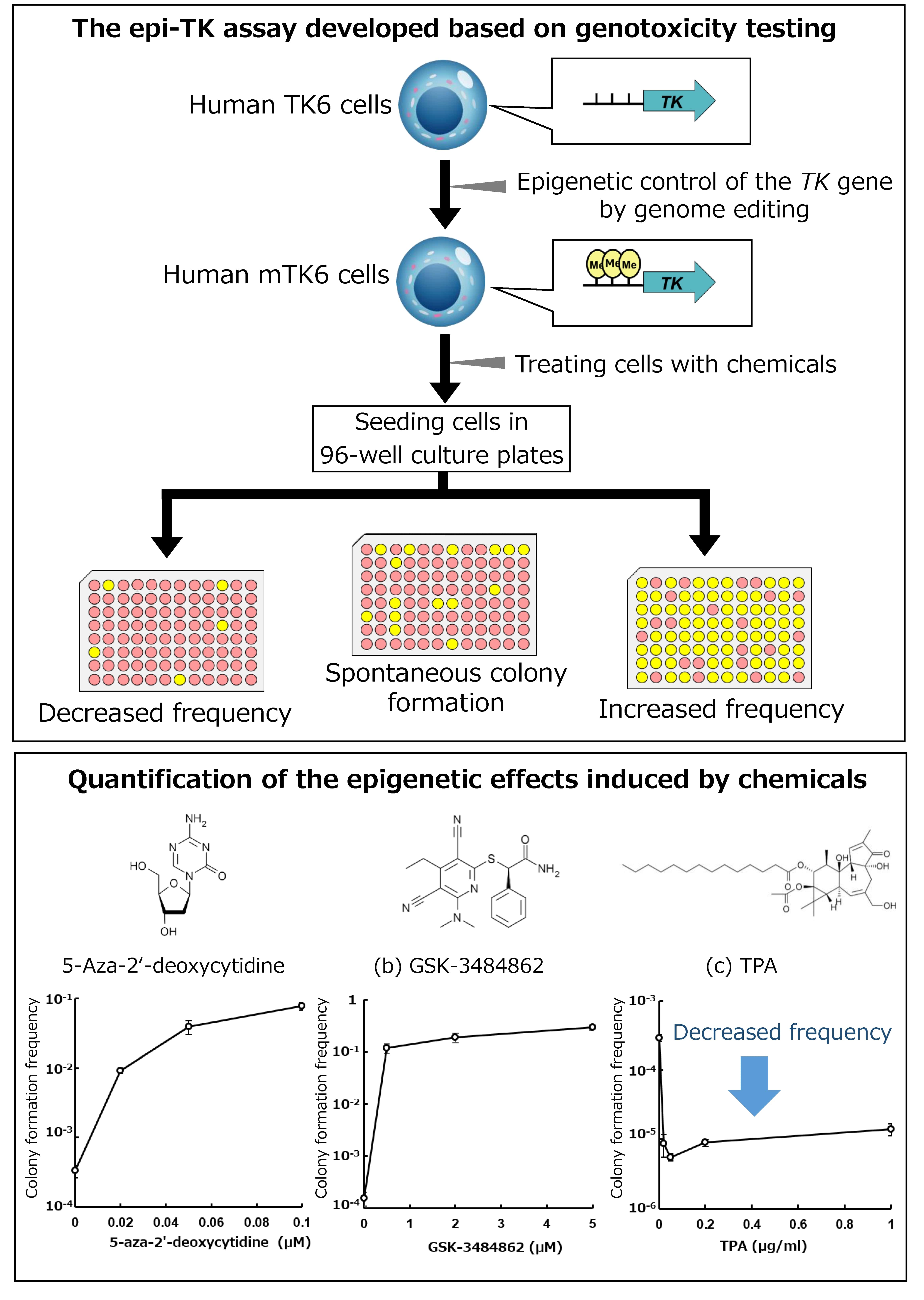Chiba University Researchers Develop Low-Cost Cell-Based Assay to Detect Chemical-Induced Epigenetic Changes
Researchers at Chiba University, in collaboration with Japan’s National Institute of Health Sciences, have developed a novel cell-based assay that detects epigenetic changes induced by environmental chemicals—a capability not addressed by standard genotoxicity tests.
The study, published in Scientific Reports (March 2025), introduces the epi-TK reporter assay, which quantifies both gene silencing and reactivation in response to chemical exposure using site-specific DNA methylation of the thymidine kinase (TK) promoter.
The assay was shown to detect global epigenetic changes following treatment with DNA methyltransferase inhibitors and non-genotoxic carcinogens like TPA. It captures dynamic shifts in DNA methylation and histone acetylation, providing a more complete picture of chemical-induced gene regulation.

Unlike sequencing-based epigenetic analysis, which is expensive and technically demanding, this approach suggests a low-cost, scalable alternative suitable for use in low-resource settings. According to the researchers, it could improve chemical risk assessment, particularly for compounds found in food, cosmetics, and industrial materials linked to carcinogenesis and other health effects.